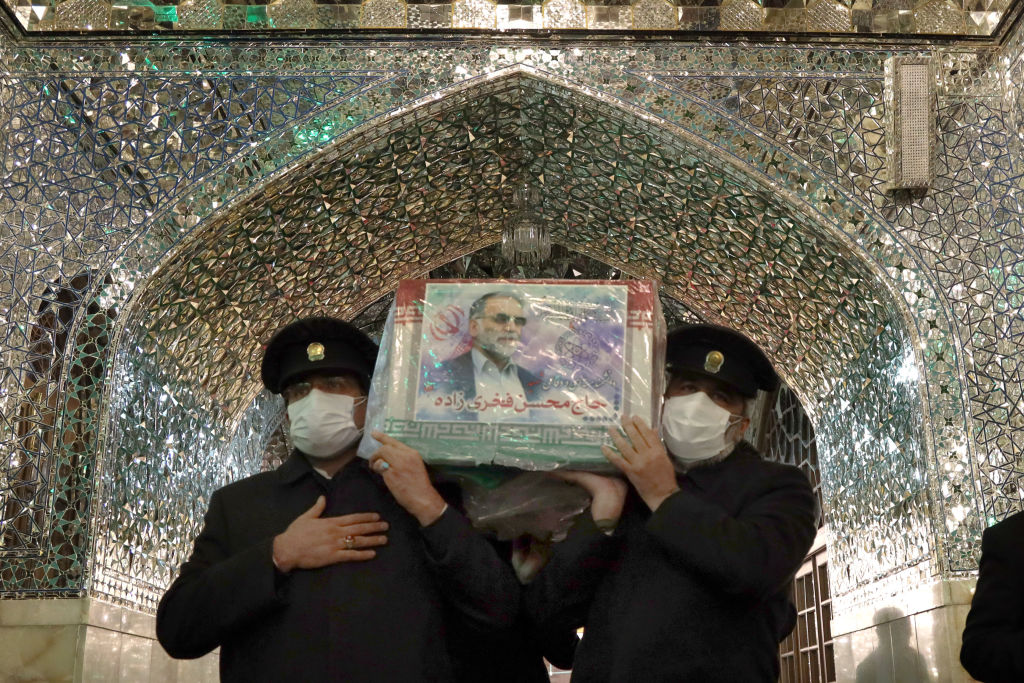Media speculation has gone into overdrive since the assassination of Iran’s top nuclear scientist on Friday. Mohsen Fakhrizadeh was an important albeit little-known figure in the Iranian government and was the head of research and innovation in Iran’s defence ministry.
Fakhrizadeh was also an integral figure in Iran’s pre-2004 nuclear weapons work, and his role in Iran’s Amad program in the early 2000s had long made him a person of interest to those seeking to unravel Iran’s historical weapons program. Fakhrizadeh’s role in Iran’s defence establishment also raised questions about the nature of his ongoing research, including whether there were any elements that related to nuclear weapons.
There are suggestions he may also have held the positions of deputy defence minister and brigadier general with Iran’s Islamic Revolutionary Guard Corps (IRGC). Those appointments would have accorded him a level of seniority broadly equivalent to that of IRGC major general Qassem Soleimani, who was assassinated by US forces in Baghdad in January.
Israel has, unsurprisingly, emerged as the most likely culprit behind Fakhrizadeh’s killing. As noted by Trita Parsi in Responsible Statecraft, Tel Aviv had the expertise, capacity and motive to conduct the attack, and it has carried out similar assassinations before. Israel has been identified as being likely behind the murder of four other Iranian scientists between 2010 and 2012, and the attempted murder of several others. It’s also likely that the US was complicit in the attack, at a minimum providing Tel Aviv with a green light to conduct the attack.
Read the article by Connor Dilleen in The Strategist.

